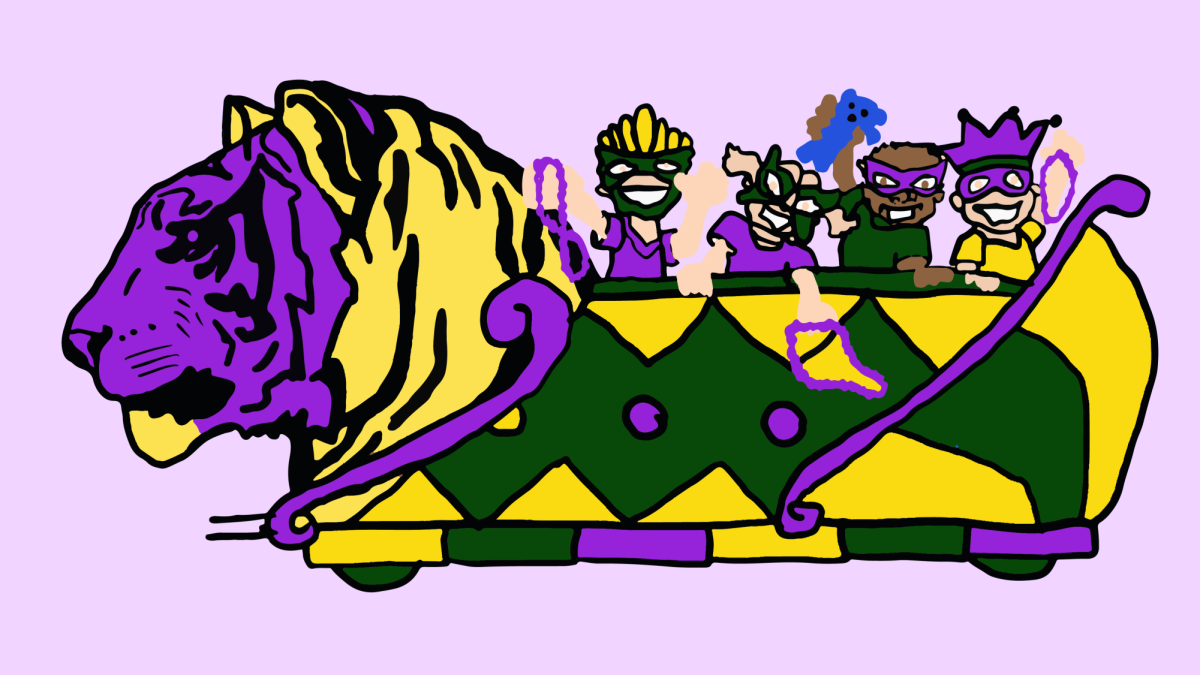TikTok reached more than 100 million U.S. users in August 2020, but as a ban threatens its gained popularity, students question what the future holds for the app.
Some students who are popular on the video-sharing social media platform are worried about how the impending ban might affect their followings.
Sports administration freshmen Faith Holcomb started TikTok as a creative outlet to cope with the bullying she faced in school in late August 2019 and has since collected over 65,000 followers.
When Holcomb heard of the possible ban, she weighed her options if the app met its demise and saddened at the thought of the app dying.
“So much of life is on it,” Holcomb said. “I know I’ve only been on it for a year, but I feel like I’ve seen myself grow I’ve seen myself go through different stages of my life through the app. It would be upsetting.”
Holcomb elaborated that she plans to move her content to another platform if the ban passes, but she doubted the likelihood of TikTok dying.
“In the beginning there was lot of unknown, and it was kind of nerve racking,” Holcomb said. “Then I thought if TikTok gets banned someone will create a similar app, but I don’t really think it’s going to get banned. It’s too relevant right now for it to all of the sudden disappear.”
Political science and history junior Ethan Lauvray first began using TikTok in March 2020 and called the ban a “political witch hunt” and said it could set a bad precedent.
“Saying a social media app poses a threat because of the type of user and the company that owns it opens up a really big door for really any company that’s not U.S. owned to be claimed as a security threat,” Lauvray said.
Lauvray also speculated that the ban’s reasoning might stem from the app’s involvement in the disruption of President Trump’s political rallies.
“The idea of the ban is ridiculous,” Lauvray said. “It doesn’t seem substantiated by any claim outside of Trump being angry about what some of the users have done”
Other students not invested in the app remained unaffected by TikTok’s possible outlawing.
Interdisciplinary studies junior Abby Hynes does not frequent social media apps and thinks the TikTok ban would ultimately result in a new app.
“Honestly, if it got banned I would kind of be happy, but I’m sure there’s other TikTok-esque apps popping up,” Hynes said.
Hynes further questioned what specific security threats TikTok presents compared to other platforms.
“What app doesn’t collect data?” Hynes said. “If TikTok is collecting our data, what other kind of apps are doing it? As a young consumer of technology and social media, you’re aware of what things you sign off of when you start your new iPhone or any new account.”
Computer science associate professor Nash Mahmoud elaborated on what type of information companies could potentially steal from users.
Examples included location, phone calls and text messages, the time consumers fall asleep and microphone and camera data.
“An app can spy on everything that you can do,” Mahmoud said. “As long as you have that device on you [apps] can track anything you do.”
In addition to removing TikTok from the app store, the potential US ban would prohibit software updates, a vital part of staying relevant in the tech world.
Mahmoud shared that software updates fix bugs, improve app performance and minimize phone battery consumed.
“Apps are constantly updating, sometimes automatically,” Mahmoud said. “Banning updates is like a death sentence for an app. In order to stay relevant, you have to update the app all the time. Some students worry about the app’s future while others fear what information the TikTok company might steal.
English and pre-law junior Grace Aslanian has just over 4,100 followers and thoroughly researched the reasoning behind the ban.
“I understood where it was coming from, but I felt like at the end of the day the app would end up not getting banned,” Aslanian said. “It has such a huge status in the U.S. that it couldn’t just disappear.”
Although some students believe the app is too relevant to exit the app store, Mahmoud referenced the downfalls of the popular apps YikYak and Vine
“Before TikTok there was Musical.ly, and before Musical.ly there was Vine,” Mahmoud said. “No app is too big to fail.”
‘”No app is too big to fail:’ LSU community weighs in on TikTok ban
October 12, 2020

tik tok
More to Discover






